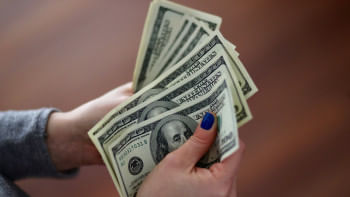Glimpses into Sheikh Mujib's ready wit
IN 1974, Prime Minister Sheikh Mujib went to Washington, D.C. to meet US President Ford and stayed in the Blair House used by the visiting heads of governments. I was then working for the World Bank, and the President of the bank, Mr. Robert McNamara, wanted to meet the Prime Minister for a one-to-one meeting, which I promptly arranged. In the meeting, Mr. McNamara was accompanied by the director of the bank, Bill Diamond, and I assisted the Prime Minister.
McNamara briefed the prime minister on various IDA projects that were being implemented in Bangladesh, and also apprised the prime minister on some new initiatives. As the meeting ended, McNamara rose, shook hands with the prime Minister and was ready to go. Suddenly, he stopped and asked, "Mr. Prime Minister, when are you going to devalue the Bangladesh currency?" The prime minister's spontaneous response was, "Mr. McNamara, if, instead of Tajuddin, you were my finance minister and made this recommendation, I would devalue Bangladesh's currency today."
Mr. McNamara burst into laughter, saluted the prime minister and left.
In March 1972, Prime Minister Sheikh Mujib went for a state visit to the USSR. In the first leg of the journey from Dhaka to Bombay by Ilyushin-18, the aircraft sent by the Russian Government, I, along with Foreign Minister Abdus Samad Azad and Deputy Chairman of the Planning Commission Dr. Islam, were sitting with the Prime Minister in his first class cabin.
At an opportune moment, I told the prime minister that Mr. Jalil of the Pakistan National Oil had called me in Dhaka and requested that I seek his permission, so that Mr. Jalil could visit the PM in Moscow. No sooner had I finished my statement, both the foreign minister and the deputy chairman expressed their resentment and reservation, as they asked, "How can the prime minister of Bangladesh meet a Pakistani?"
I immediately retorted, "Friendship transcends national boundaries and is above politics. There is nothing wrong with having a Pakistani friend and to have a meeting with him." The prime minister looked at me quietly and said, "Islam, if Jalil calls you tell him that my schedule in Moscow is full and that I will have no spare time to meet anybody outside my official programme."
It was a master stroke and I still wonder whether he agreed or disagreed with me. The foreign minister and deputy chairman must also have felt the same confusion.
In February 1972, the Prime Minister went for a state visit to India and the venue of the meeting was the Calcutta Government House. I was a part of the entourage and sat on the right of the prime minister at a bilateral meeting with Mrs. Indira Gandhi. The foreign minister, Abdus Samad Azad, was sitting on a separate couch.
On conclusion of the discussion on the official agenda, which included withdrawal of Indian troops in Bangladesh, Special Assistant to the Indian Prime Minister, D.P. Dhar, approached Prime Minister Mujib and requested him to step out to see the detailed plan of the railway rehabilitation prepared by the Indian Railways. The prime minister did not like this informal approach and had no intention to accompany D.P. Dhar, as he replied, "I am sorry but I need to discuss some important issues with my foreign minister. You should instead take my finance secretary Mr. Matiul Islam to see the rehabilitation programme and report back to me."
Understanding the prime minister's strong reluctance, I immediately got up to accompany Mr. Dhar, without giving him an opportunity to repeat his request to the prime minister for the second time. Without offending D.P. Dhar, the Prime Minister had his way.
The writer was the first Finance Secretary of Bangladesh.

 For all latest news, follow The Daily Star's Google News channel.
For all latest news, follow The Daily Star's Google News channel. 



Comments